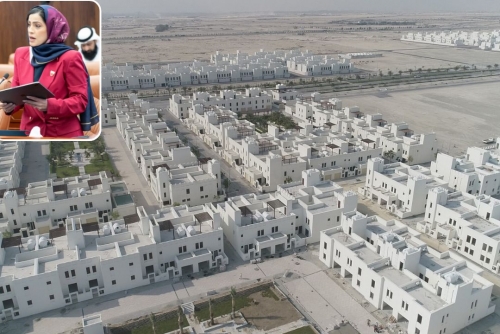MPs push for more government-provided housing for divorced and unmarried women
TDT | Manama
Email: mail@newsofbahrain.com
A new proposal presented in Parliament aims to broaden access to government-provided flats for women who are divorced, widowed, unmarried, or otherwise lack familial support.
It highlights a gap between the state’s intended housing support and the reality experienced by affected women.
MP Basema Mubarak, supported by four fellow parliamentarians, submitted the recommendation in accordance with constitutional obligations and parliamentary procedural codes.
It specifically addresses Article 4 of Decision No. 909 of 2015, a regulatory provision which defines the category of women eligible for housing support.
Units
Mubarak argues that while the existing framework explicitly acknowledges the need for state-provided housing to those who lack sufficient familial or financial resources, the allocated number of residential units remains insufficient in practice.
According to Mubarak, this inadequacy is not merely an administrative matter but also touches upon fundamental conditions of dignity and psychological wellbeing.
She emphasised that the state bears direct responsibility for offering housing security to individuals without adequate alternative support structures.
The parliamentary document submitted alongside the proposal draws on Articles 5 and 9 of the Bahraini Constitution, framing housing as a matter central to social stability, especially where women may otherwise face precarious living situations.
The submission critiques existing allocations as insufficiently attentive to the lived vulnerability of the affected women, who are made dependent upon a housing framework which currently provides too few resources to fulfil the legal obligation to care.
In her explanatory comments, Mubarak stressed that a housing system should ensure not only physical shelter but also a recognition of women’s particular vulnerabilities arising from situations of divorce, widowhood, abandonment, or unmarried status.
She noted that such circumstances often leave women at risk of isolation and instability, which requires state intervention in the form of tangible and adequate housing provision.
Related Posts

